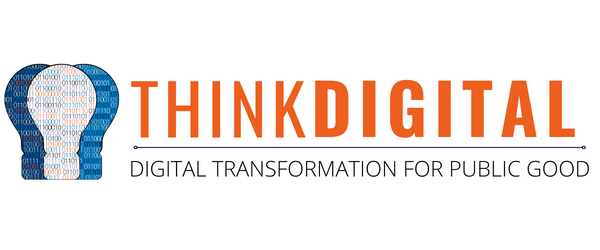The Metaverse is Coming: Is Your Organization Ready?
March 14, 2023
By Ryan Androsoff, CEO & Founder, Think Digital
In the past few years one of the most hyped terms in the tech world has been the “Metaverse”. First coined in Neal Stephenson’s 1992 science fiction novel Snow Crash, it evokes the idea of a persistent, connected online experience that we can explore with all our senses.
Over the past month it seems I’ve been talking about the Metaverse a lot. In February I was at the World Government Summit in Dubai where I was part of a panel talking about the Metaverse and what it means for government. Closer to home, a few weeks ago I was invited to present to an event hosted by the University of Ottawa’s Telfer School of Management which brought together a group of local business leaders and academics to talk about what the impact of the Metaverse might be for workplaces. We also recently released a new episode on our Let’s Think Digital podcast focused on the Metaverse and how we’ve been using it as part of our Digital Executive Leadership Program for public sector executives.
So why are we talking about the Metaverse so much these days? Well part of the reason is that the advent of immersive, consumer-grade Virtual Reality (VR) and Augmented Reality (AR) technologies has meant that the Metaverse is quickly transitioning from science fiction to reality. VR refers to the use of digital headsets that allow users to experience computer-generated images in a fully immersive 360-degree environment. AR, on the other hand, overlays computerized images over the real-world using smartphones or specialized smart-glasses. While these technologies that empower the Metaverse aren’t exactly new, they have recently reached an inflection point of cost, performance, and availability that opens up interesting new possibilities.
Some of the biggest tech companies are investing in developing the Metaverse, including Meta (previously known as Facebook), whose Quest 2 VR headset has become what many would consider to be the first VR mass consumer product with over 15 million units sold in just two years. Apple and other companies are also ramping up their investments in VR and AR, with next-generation products expected to launch soon.
One of the principles of good service delivery is to meet your customers (or citizens) where they are. That might increasingly mean the Metaverse in one form or another. However, we should be clear that the Metaverse is likely not going to be the appropriate venue for every service delivery need. It is also important to acknowledge that there are some legitimate concerns from an equity and competition standpoint with regards to who will get access to, and control of, Metaverse platforms. The history of major social media platforms over the past two decades and recent controversies over issues such as centralization and censorship of such platforms may prove to be instructive as we think about the future of the Metaverse.
That said, Metaverse technologies are showing some compelling use cases for situations where we want to prototype or explore real-world services using what is often called “digital twins”. As we explore what the future of remote working looks like with workplaces that are shifting post-pandemic to a hybrid model, it allows possibilities for more immersive virtual collaboration across geography. It can also allow for exploring and manipulating data and scientific information in compelling new ways that improve decision-making compared to the traditional 2-dimensional data visualizations that we are used to.
The Metaverse is still very much in its infancy and organizations should be careful to sort through the hype to discover where there might be real value for them. This will require building knowledge and encouraging experimentation in this fast-moving domain. We recommend that leaders start thinking about the Metaverse as being a part of their future technology roadmap in the same way that they have been exploring how technologies such as Artificial Intelligence and Blockchain can be leveraged to improve services. The Metaverse may yet prove to be a powerful new way to connect, collaborate, and communicate with stakeholders, clients, and citizens. Getting hands-on experience now with this emerging technology will ensure that your organization is prepared take advantage of it in the future while being mindful of how to navigate the potential pitfalls.
What do you think? We’ve love to hear what your thoughts are about the Metaverse and where you feel the biggest opportunities and pitfalls might be! Please fill out this very short survey and share your thoughts with us: https://www.surveymonkey.com/r/YHD3ZMB

